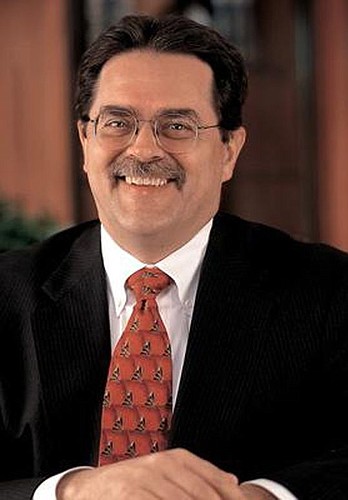
CSXCSFor several years, one of CSX Corp.’s major goals has been to increase the efficiency of its railroad and improve its operating ratio.
The Jacksonville-based company has targeted an operating ratio — its operating expenses divided by revenue — in a mid-60s percentage.
So it’s not surprising when CSX this week reported better-than-expected second-quarter earnings, a major reason was a big drop in that operating ratio to 66.8 percent, from 69.3 percent a year earlier.
“This is our lowest (operating ratio) by far,” Chairman and CEO Michael Ward said in an interview Wednesday.
Ward said there were three reasons for the improvement. One was pricing gains on its freight shipments and another was lower fuel costs.
When fuel prices rise, CSX passes on the added costs to its customers. When fuel prices drop, CSX records lower revenue because it is not collecting that surcharge, but that also reduces its expenses by the same amount, so it improves the operating ratio.
The third reason for the operating ratio drop was efficiency improvements on the railroad. As an example, Ward said scheduling changes in its merchandise transportation business are reducing the number of trains traveling per week while still offering customers faster service.
CSX became more efficient even while increasing its headcount. Although CSX cut about 300 positions in its headquarters early this year, its average headcount throughout its system rose to 32,052 in the second quarter, 672 more than last year’s second quarter.
Ward said CSX began training new workers last year as freight demand increased.
“We’ve been actively hiring,” he said.
However, the company has about 400 rail workers on furlough and that may rise to 600 in the third quarter, as a drop in energy-related freight shipments is expected to lower overall demand.
Although several factors helped get the operating ratio near the company’s goal in the second quarter, Ward said it will still take more time to permanently get the ratio to its mid-60s goal.
“Not this year, but this is making progress toward that,” he said.
Besides improving its operating metrics, CSX’s safety metrics are also improving, despite some high-profile accidents recently involving automobiles and trains at railroad crossings. The number of reportable train accidents per million train miles dropped by 17 percent in the second quarter to 1.81.
“Our safety is improving at CSX, and as an industry,” Ward said.
Ward said CSX is doing all it can to keep the rail lines safe.
“We look at it all the time,” he said.
“Unfortunately, you can’t fix human behavior.”
Ward said the company has an active program to try and educate the public about the dangers of railroad crossings and to not try and beat the train. Many messages are aimed at 18-to-24-year-old males, who are the most likely to try and race across the tracks, he said.
“That one of the reasons we sponsor NASCAR,” he said.
The company is also bringing education programs to college campuses, he said.
CSX’s second-quarter earnings of 56 cents a share were 3 cents higher than the second quarter of 2014 and also 3 cents higher than the average forecast of analysts, according to Thomson Financial.
Revenue fell 6 percent to $3.06 billion but because of the improved operating ratio, CSX was able to increase earnings.
A big reason for the revenue drop was a continued decline in coal shipments, which is CSX’s largest business segment.
Revenue from coal fell 15 percent in the quarter to $630 million.
Ward said CSX is expecting continued declines throughout the energy sector, with shipments of crude oil and frac sand also expected to fall.
“The only other place we see challenges is the metals market,” he said.
The strong dollar is creating more demand for foreign shipments of steel, which is lowering steel volume in the U.S., Ward said.
However, he is optimistic about demand for shipments of other freight besides energy and metals for the rest of this year.
“If you take these markets out, we see good volume in the other markets,” he said.